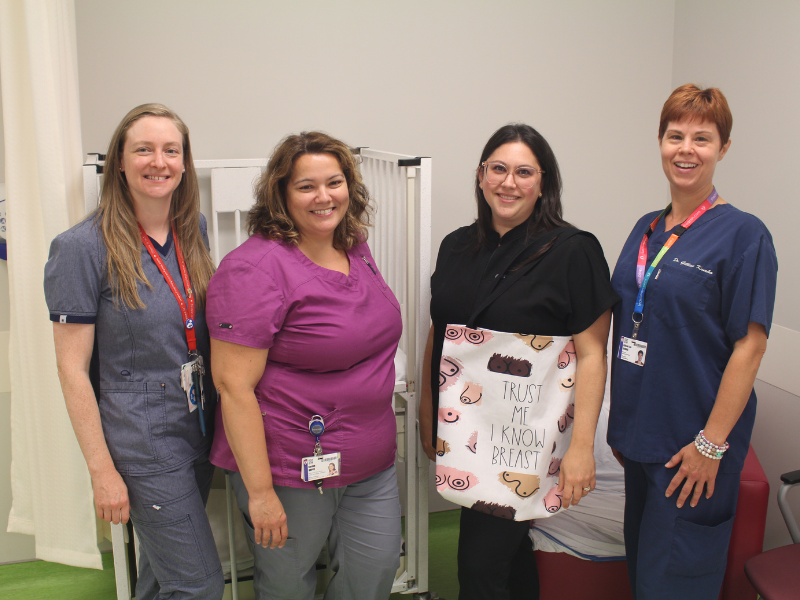
New case-based textbook explores complex pediatric colorectal care
25 February 2026
Rise in respiratory infections and measles outbreak: important infection prevention measures at the Montreal Children’s Hospital.
Read moreWelcome to the Montreal Children's Hospital

2 October 2024
The Royal Victoria Hospital (RVH) Breastfeeding Clinic has just celebrated its first year of operation. With National Breastfeeding Week taking place from October 1 to 7, 2024, here’s a chance to look back on the successes and challenges that have punctuated the year of one of Quebec’s few tertiary care breastfeeding clinics.
This pilot project, which began in September 2023, is solely for patients of the McGill University Health Centre, i.e. patients of the Postpartum Unit, those who come to the outpatient clinic for postpartum follow-up, or mothers of patients of the Montreal Children’s Hospital (MCH).
“For example, it could be for a woman who has had breast surgery, a multiple pregnancy or who is having difficulties with her milk production. We also think about mothers of premature babies, or babies who have lost a lot of weight,” explains Melyssa De Simone, nurse in charge of the clinic and breastfeeding consultant.
Every Tuesday and Thursday, a physician specialized in breastfeeding and two breastfeeding consultant nurses receive babies and their mothers for postpartum support. Resident doctors have been added to the team on Tuesdays, and will also be present on Thursdays from November onwards. Some 15 mother/baby dyads are seen during the day and the clinic’s success continues unabated.
While the clinic was initially only open one day a week, a second day has now been added. And were it not for limited resources, it could be open every day of the week, as there is more than enough patients.
“Word has spread and we now have requests for consultation from organizations in the community, such as CLSCs or medical clinics. They refer MUHC patients to us when they have a more difficult breastfeeding problem. Our expertise is recognized,” adds Melyssa.
Multiple functions
Because they are in regular and sustained contact with patients, the breastfeeding clinic’s professionals are able to identify their other health needs and refer them to the appropriate divisions. For example, if a mother seems depressed, they can talk to her about psychiatric services that might help.
A special project has also been set up with the MCH Neonatal Intensive Care Unit, so that mothers of babies hospitalized there with milk production problems can be seen on the next clinic day. This way, they can be quickly prescribed medication to boost their production.
The project has been a success, with a 27 per cent reduction in the use of infant formula.
“I truly don’t have words to thank you enough for the support and care I’ve received at the Clinic. It has been invaluable to me and I appreciate everything you’ve done. You were the closest and most important people to me during this challenging period as a new mother with no prior experience with breastfeeding. Every little detail mattered immensely and your support was invaluable,” said one of the clinic’s patients in a satisfaction survey.
Some data
In the past year, the breastfeeding clinic has: